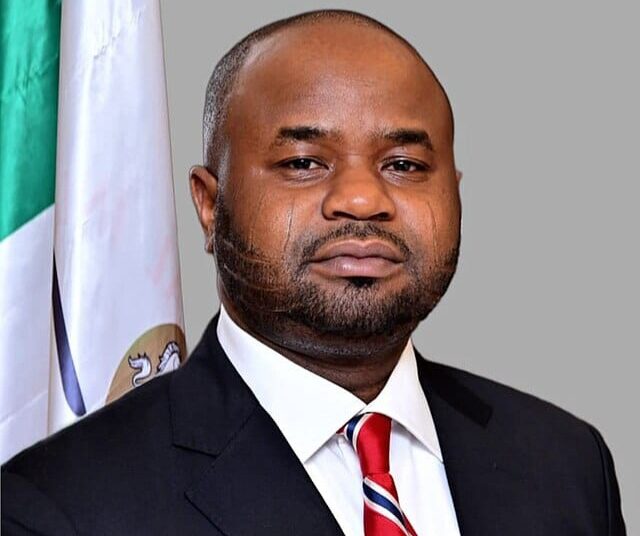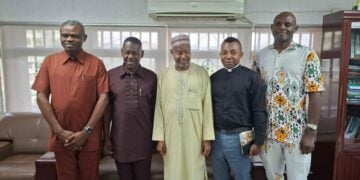He didn’t just raise revenue; he raised the standard of public service.
From Expectation to Excellence
When Dr Zacch Adedeji took over as Executive Chairman, Federal Inland Revenue Service (FIRS), the expectations were high, and the scepticism was louder. Two years later, both have given way to applause. In that short span, Adedeji has turned FIRS into one of Nigeria’s most efficient, transparent, and digitally driven public institutions—proving that reform, when backed by integrity, can deliver measurable change.
“Fairness, simplicity, and service—that’s the future of tax,” he often says.
“When people trust the system, compliance follows.”
A Fiscal Turnaround, in Figures that Matter
Numbers tell only part of the story, but they tell it compellingly.
In 2023, FIRS collected N12.36 trillion, exceeding its target by 7 percent and marking the highest annual revenue in its history.
By 2024, that record was eclipsed again—N21.7 trillion realised against a goal of N19.7 trillion.
Between September 2023 and August 2025, total mobilisation hit an astonishing N46 trillion, equivalent to 115 percent of its combined revenue target.
These aren’t windfalls; they are the product of meticulous reforms that broadened the tax base, curbed leakages, and introduced a culture of accountability rarely seen in public finance. Beyond breaking records, FIRS under Adedeji has restored confidence in tax administration as a sustainable engine of national development.
The Reformer’s Blueprint
A technocrat to the core, Dr Adedeji recognised that modern tax systems thrive on three pillars—clarity, collaboration, and compliance.
He led the introduction of four landmark pieces of legislation—the Nigeria Tax Act (2025), Tax Administration Act, Joint Revenue Board Establishment Act, and the Nigeria Revenue Service Act—a suite of reforms that simplified procedures, harmonised inter-agency operations, and aligned Nigeria’s tax laws with international best practices.
He also restructured FIRS itself: from rigid tax-type departments to function-based clusters that serve taxpayers by need rather than by bureaucracy. The result? Faster processing, fewer bottlenecks, and a service culture previously unimaginable in the agency.
Digital Transformation at Scale
If Adedeji’s reforms had a heartbeat, it would be digital. Under his leadership, FIRS fully deployed TaxPro-Max, a platform that now automates over 80 percent of operations—from registration and filing to payment and receipt.
He introduced electronic invoicing, a simple *USSD ( 829# ) tax-payment code, and the National Single Window Initiative, which links port revenue data with customs and shipping agencies.
Every innovation had a single goal: to make compliance easier than evasion.
Self-service centres now dot FIRS offices nationwide, enabling individuals and corporations to file taxes in minutes. This digital leap hasn’t only improved convenience; it has reduced corruption, improved data accuracy, and raised public trust.
Putting the Taxpayer First
At the heart of the Adedeji doctrine is empathy. He redefined taxpayers not as targets, but as customers. Through the One-Stop Shop Initiative, FIRS now offers all taxpayer services—from inquiries to dispute resolution—under one roof.
He launched customer-satisfaction tracking, strengthened staff welfare, and ensured that service delivery reflects the agency’s mantra:
“Fair Tax Administration Through Responsive and Accessible Service.”
His reforms have created a more cooperative tax environment, replacing hostility with understanding and compliance through convenience.
Beyond Revenue—A Broader National Vision
Dr Adedeji’s mission extends beyond revenue collection. He envisions a Nigeria whose tax-to-GDP ratio rises from 10 percent to 18 percent, aligning with the African average and reducing dependence on oil.
He sees taxation not merely as a fiscal tool, but as an engine of inclusive growth—funding schools, hospitals, infrastructure, and the promise of shared prosperity.
Through persistent engagement with the private sector, professional associations, and sub-national tax authorities, he has turned FIRS into a partner in development rather than a mere collector of dues. His collaborative approach has improved Nigeria’s business climate and enhanced transparency in public finance.
Quiet Strength, Loud Results
A trained economist with a PhD in Accounting, Adedeji combines technical mastery with the calm precision of a strategist. Those who work with him describe him as “a listener who measures twice before cutting once.” His reforms are data-driven, his decisions deliberate, his demeanour quietly firm.
In less than two years, he has moved the Service from paperwork to performance, from suspicion to trust. And in doing so, he has given Nigeria something more valuable than revenue—a model of disciplined, digital, and citizen-oriented governance.





